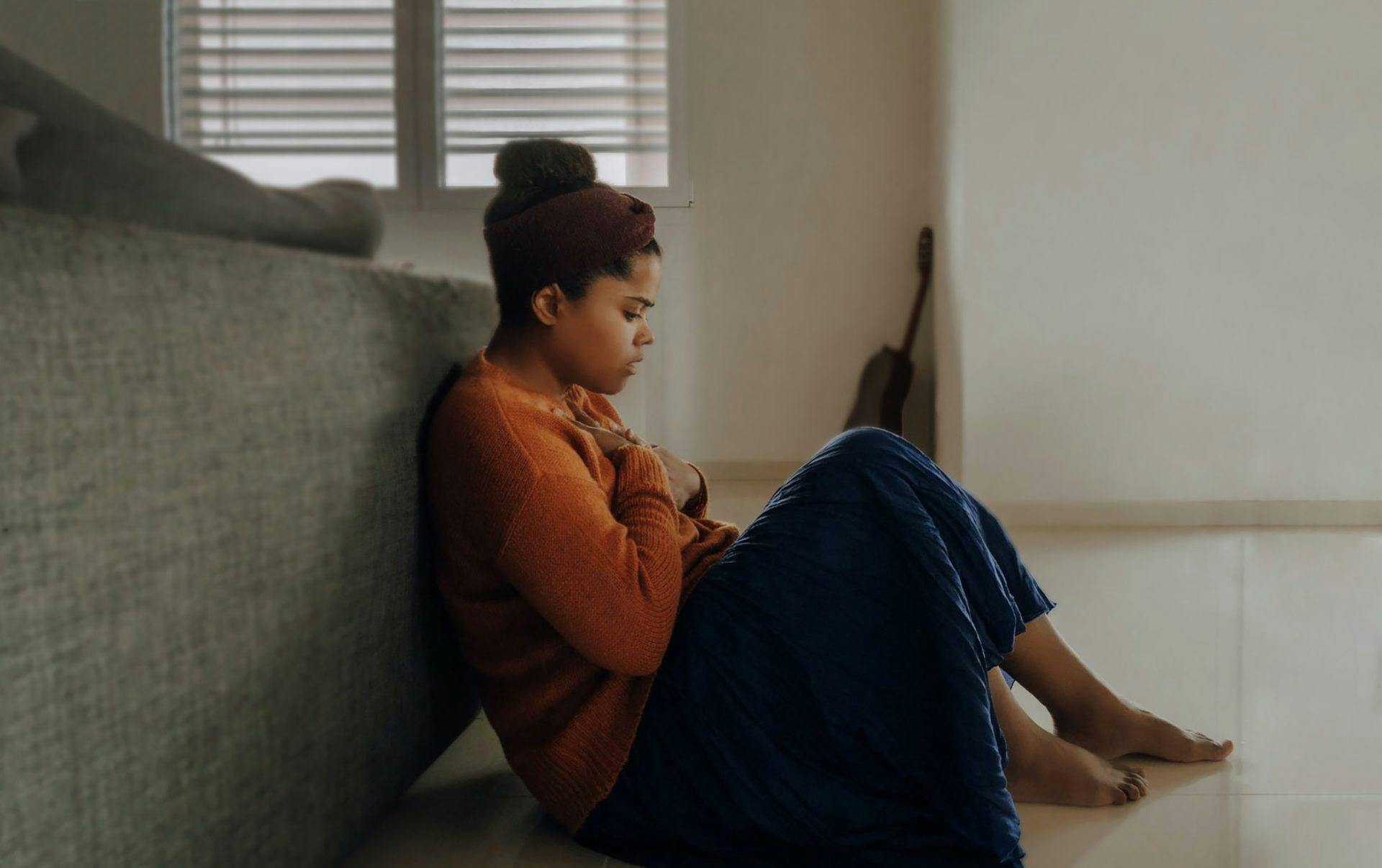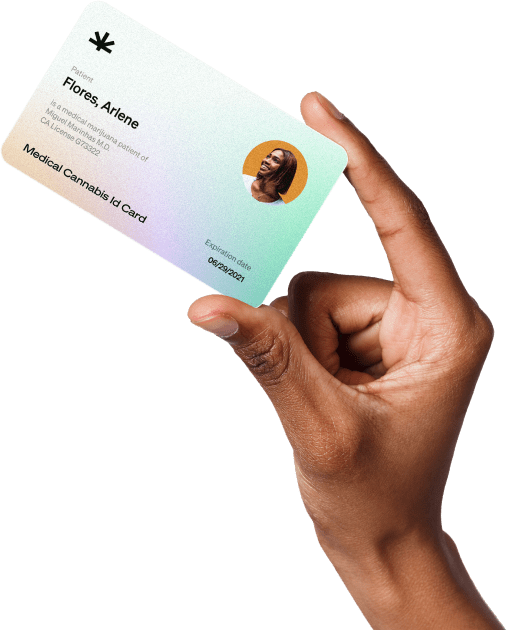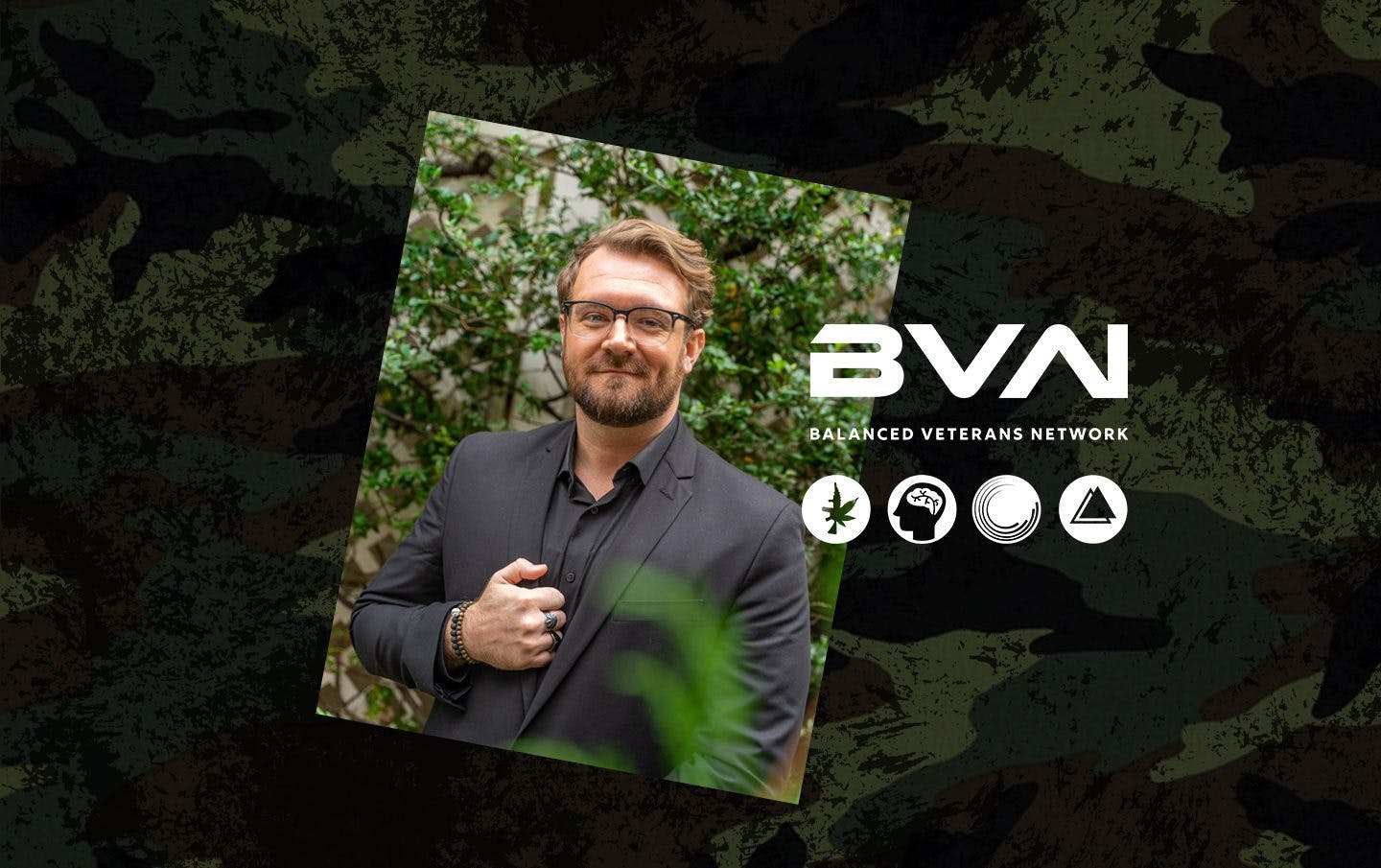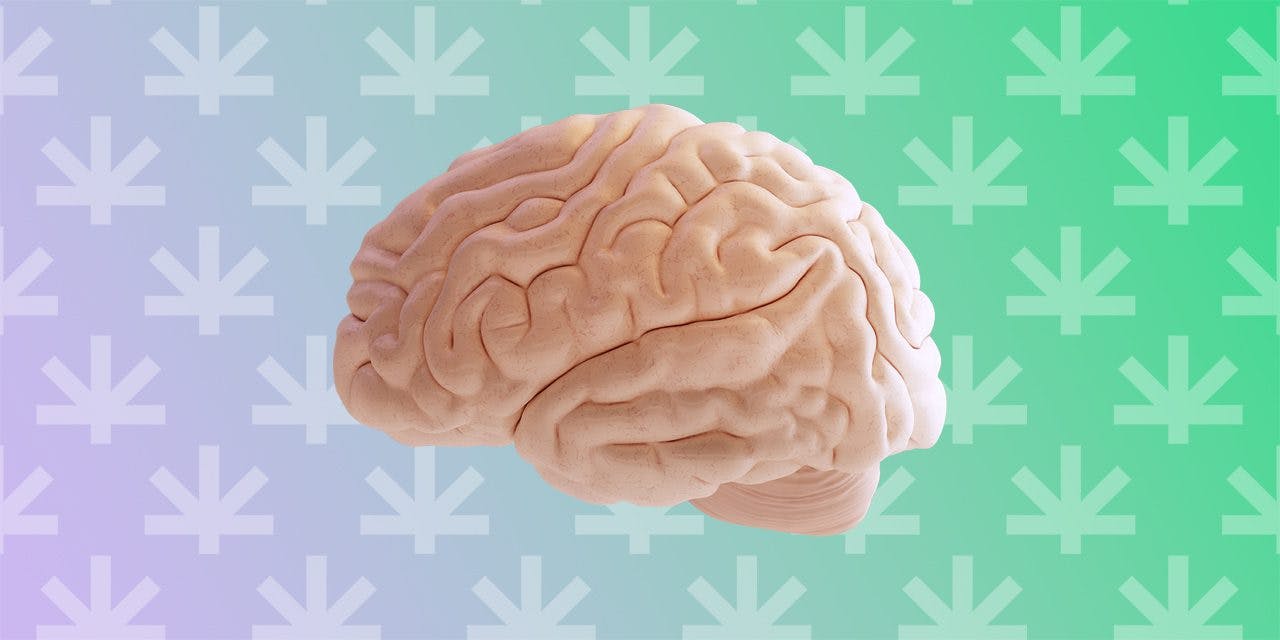Can Medical Marijuana Really Treat Anxiety?

Article written by

Tina MagrabiSenior Content Writer
Content reviewed by

Dr. Lewis JasseyMedical Director - Pediatric Medicine
Medical marijuana may be an effective treatment option for certain individuals with anxiety. Learn the benefits and drawbacks of using cannabis to treat anxiety.
Get your medical marijuana card
Connect with a licensed physician online in minutes.
How Marijuana Helps Anxiety
When most people think of anxiety, they’re usually thinking of generalized anxiety disorder (GAD), the most common form of anxiety. Symptoms of GAD include irritability, chronic apprehension and a phobic-like avoidance of situations that could cause a panic attack.
However, cannabis use has proven in some studies to be a more targeted treatment for different types of anxiety including PTSD, OCD, panic disorder and social anxiety disorder.
PTSD
There is evidence that cannabis has an effect on emotional regulation, and can be used to help mediate symptoms for those suffering from post-traumatic stress disorder (PTSD). So, why does medical marijuana help PTSD sufferers?
The main reason is because PTSD sufferers lack the endocannabinoid anandamide, the “pleasure” neurotransmitter thought to be responsible for the “runner’s high.” Tetrahydrocannabinol (THC) is the phytocannabinoid that corresponds to anandamide.
There are also other cannabinoids – namely, cannabigerol (CBG) – that have significant anti-anxiety and antidepressive effects.
Interesting fact: PTSD is the only medical condition which qualifies patients in all states with an operational medical cannabis program.
Download Free Guide to Cannabis and PTSD
OCD
Cutting-edge research published in 2021 demonstrates that cannabis may be beneficial in treating obsessive-compulsive disorder (OCD). In one study, inhaling marijuana reduced symptoms of compulsions and anxiety in the majority of patients.
However, the benefits of cannabis on OCD were short-term and involved high levels of CBD with a notable absence of THC. Another case study from 2020 confirmed the potential benefits of cannabis on OCD.
Panic Disorder
Limited research exists on cannabis and panic disorder. However, one clinical trial is underway to understand the effects of CBD oil on people who experience panic attacks.
The trial is enrolling 90 participants at the University of Texas at Austin. The results of the study could shed light on whether CBD oil is effective in the prevention and treatment of panic attacks.
Social Anxiety Disorder
People with social anxiety disorder (SAD) may also experience relief through cannabis medicine. In one clinical study, CBD was found to reduce anxiety in individuals tasked with public speaking.
While studies conducted specifically on social anxiety disorder are scarce, the condition falls under the umbrella of qualifying conditions in many states’ medical marijuana programs.
Using Medical Marijuana for Anxiety
Consumption Methods
Topical marijuana may be a good place to start if you are new to the plant. People generally have fewer adverse reactions to topicals than any other ingestion method.
The next best consumption method to treat anxiety may be sublingual in the form of carefully measured tinctures. A drop of two of a cannabis tincture under the tongue offers significant relief from anxiety for many users.
Smoking cannabis is another possible ingestion method for anxiety since the effects tend to wear off in a few hours. Therefore, if you’re having a negative experience with THC, the side effects will fade fairly quickly.
Perhaps the least desirable cannabis consumption method for people with anxiety is edibles. Cannabis-infused foods like brownies and other baked goods are startlingly potent. Edible effects can linger all day (or longer). Plus, THC edibles are known for being difficult to dose and especially problematic for people with anxiety due to their unpredictable effects.
Best Strains for Anxiety
A strain with high THC and a good amount of CBD to “tone down” THC’s effects while still giving that euphoric effect may be ideal. For beginners (and even many experts), it is perhaps best to try a 1:1 THC:CBD strain or tincture, such as Cannatonic and ACDC, both indica-sativa hybrids.
Many also swear by Blue Dream, a cross between Blueberry and Super Silver Haze. Indicas like Northern Lights and Granddaddy Purple (GDP) are also popular. You could also try Dragon Fruit.
Overly strong sativas should perhaps be given a miss, although Strawberry Cough has had its praises sung for its usefulness in battling social anxiety. This may be because there’s enough indica in Strawberry Cough to “smooth out” the overwhelming effects of THC.
Strains like GDP, Gorilla Glue and Blueberry-based indicas also tend to have terpenes like humulene, linalool and alpha-pinene, which boast anxiety-busting and relaxing effects. They can also combat some of the negative side effects of THC.
As for strains you may want to avoid, anything high in tetrahydrocannabivarin (THCV) could be best given a miss, as these sativa strains (generally hailing from Africa) are renowned for their “speedy”, heart-racing effects, which can induce anxiety in some.
However, low doses of THCV actually have anti-psychoactive effects, so a small amount of THCV can create a “ceiling” for THC. Some people prefer delta-8 THC for this reason. This includes strains like Durban Poison, Green Crack, Trainwreck and AK-47.
There are two particular sativas that have mixed reviews: Jack Herer (mostly haze parentage) and Girl Scout Cookies (Durban Poison is one parent). Both of these varieties have a significant amount of indica in them, but their phenotype variation means you could end up with a very energetic strain associated with sativas. This means that such varieties (or “strains,” as they’re often called) can be used to both combat and induce anxiety!
Download Free Guide to THC
Dosing
The most important point with regard to dosing is to avoid THC-exclusive cannabis products. CBD is necessary to temper the often stimulating effects of THC which can actually trigger anxiety.
Microdosing, or using very small amounts of cannabis, is one helpful dosing strategy. Starting with extremely low concentrations of THC in equally small amounts can help cannabis work effectively for anxiety.
Specific amounts (usually measured in milligrams) should be determined in conjunction with your physician. A medical marijuana card and accompanying prescription are the best ways to treat anxiety while reducing the risk of unwanted side effects.
Risks of Treating Anxiety Disorders with Marijuana
Even with careful dosing, there are still risks associated with using marijuana to treat anxiety disorders. The risks are especially high for people under age 25 and for those with little or no experience with cannabis.
One possibility is experiencing a “bad trip,” but you can reduce this risk by forgoing marijuana edibles in favor of topicals, or by using CBD in isolation.
CBD for Anxiety
CBD has been hailed as a safe treatment with benefits that go beyond the treatment of anxiety. Pain and inflammation are two notable conditions that CBD has been successful in treating. CBD may even help combat addictions to heroin and tobacco, which in turn could help decrease anxiety levels.
However, even CBD may carry certain warnings. If you are using blood thinners, CBD may pose a threat of interaction. CBD may also interact with other drugs, including those used to treat seizures, thyroid conditions and heart conditions.
If you’re not using any potentially conflicting medications, CBD presents few side effects. Furthermore, the side effects of CBD tend to be mild and include dry mouth, drowsiness and diarrhea.
Other Methods for Treating Anxiety
Cannabis may be a supplemental treatment for some anxiety sufferers, but medical professionals usually do not recommend the plant as the only course of action. Rather, a combination of treatment options tends to work best.
Psychotherapy
Counseling sessions with a qualified psychotherapist have helped countless individuals conquer or temper their anxiety. In tandem with doctor-prescribed cannabis, psychotherapy may be even more effective at battling anxiety disorders.
Medication
Doctors prescribe numerous anti-anxiety medications to patients. The brand names Xanax, Valium and Klonopin are likely familiar to anyone who has ever taken medication for anxiety.
The downside of prescription medications is that they come with a host of potential side effects, some severe. Certain anti-anxiety medications, like Xanax, even present the risk for addiction and fatal overdose. The benefit of cannabis in contrast to such medications is that a fatal overdose has never been verified.
Lifestyle
Natural modifications to lifestyle are perhaps the easiest and safest way to treat anxiety. Eating a well-balanced diet including large portions of fruits and vegetables has shown to improve mental health in adults.
Eliminating alcohol and caffeine is another successful strategy for many anxiety sufferers. Finally, fresh air, exercise, and mindful practices like yoga offer relief from anxiety and overall health enhancement.
States That Allow Medical Marijuana for Anxiety
Anxiety is only an official qualifying condition for medical cannabis in a handful of U.S. states.
California
Not only does the Golden State allow for patients suffering from anxiety to have nearly universal and immediate access to their medicine by allowing home-growing, but they double down by covering a variety of anxiety-based conditions like social anxiety disorder, panic disorder, post-traumatic stress disorder, obsessive-compulsive disorder, specific phobias, selective mutism, and separation anxiety.
Louisiana
While many residents of Louisiana might think that anxiety disorders aren’t a qualifying condition to get a medical card of their own, those people would be wrong. But it’s easy to understand why they might have thought that way. Anxiety was actually not included in the original list of qualifying conditions for the state, but as of May 2020, the original medical cannabis bill in the Bayou State was amended so that doctors could hand out medical cards for “any condition” they believe should qualify.
New Jersey
According to the official state website, anxiety is considered an “approved debilitating condition to participate in the medical marijuana program. New Jersey Governor Phil Murphy added anxiety to the approved list in 2019 along with conditions like chronic pain, migraines, and Tourette’s syndrome as part of a wide-ranging expansion of the medical cannabis program in the Garden State.
Oklahoma
Oklahoma allows patients in their program to treat their anxiety with medical cannabis. Those suffering from anxiety disorders have access to clean, green medicine along with conditions like chronic pain, muscle spasms, glaucoma, cancer, and a variety of terminal conditions. Just like Louisiana, Oklahoma’s over 300,000 patients can be certified for medical cannabis by a qualified doctor as long as they are 18 years or older.
Pennsylvania
Just like every other entry on this list, anxiety disorders are listed along with conditions like amyotrophic lateral sclerosis (ALS), cancer, epilepsy, irritable bowel syndrome (IBS), multiple sclerosis (MS), and opioid use disorder on the official Pennsylvania state website.
Marijuana and Anxiety: The Bottom Line
Research and anecdotal evidence is mixed when it comes to using cannabis for anxiety. One primary concern is that any amount of THC could worsen anxiety symptoms in certain individuals. CBD isolate, therefore, may be a more reliable alternative to full-spectrum cannabis to treat anxiety.
Speak with one of the physicians at Leafwell if you would like to use cannabis to treat your anxiety. Schedule a telehealth appointment and get started on your way to obtaining a medical marijuana card.
Get Your Medical Marijuana Card
Connect with a licensed physician online in minutes.


